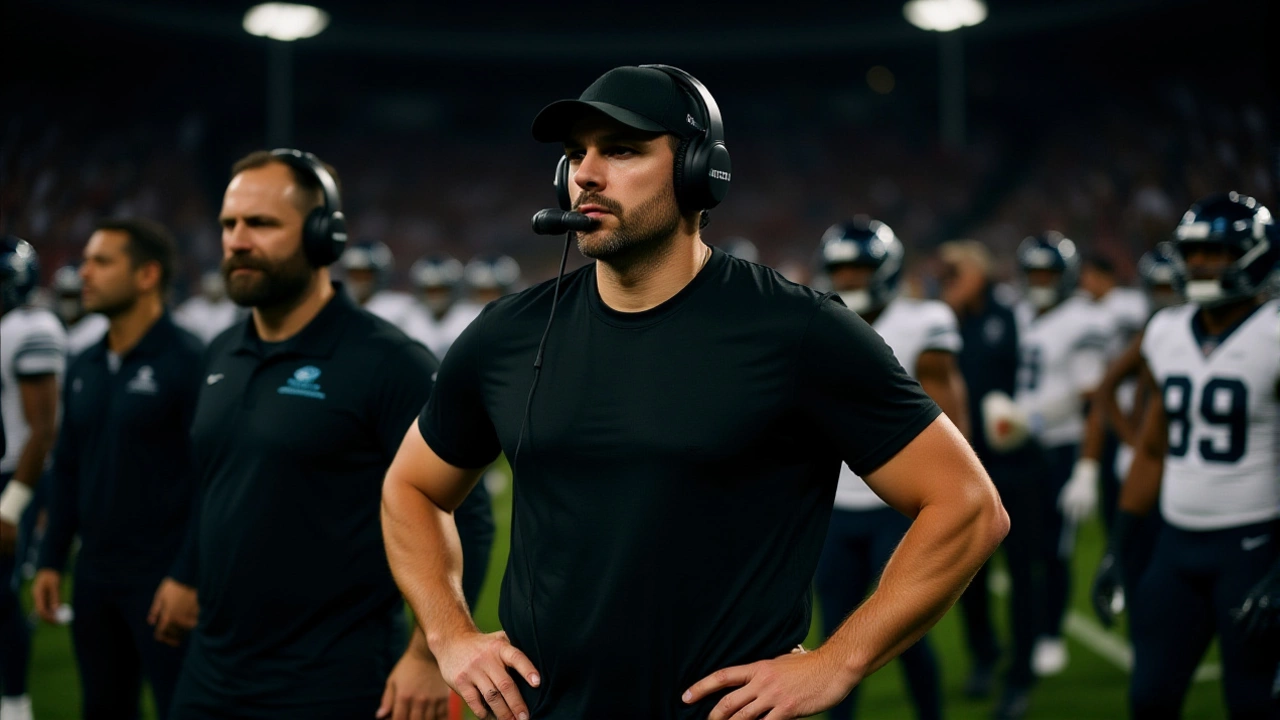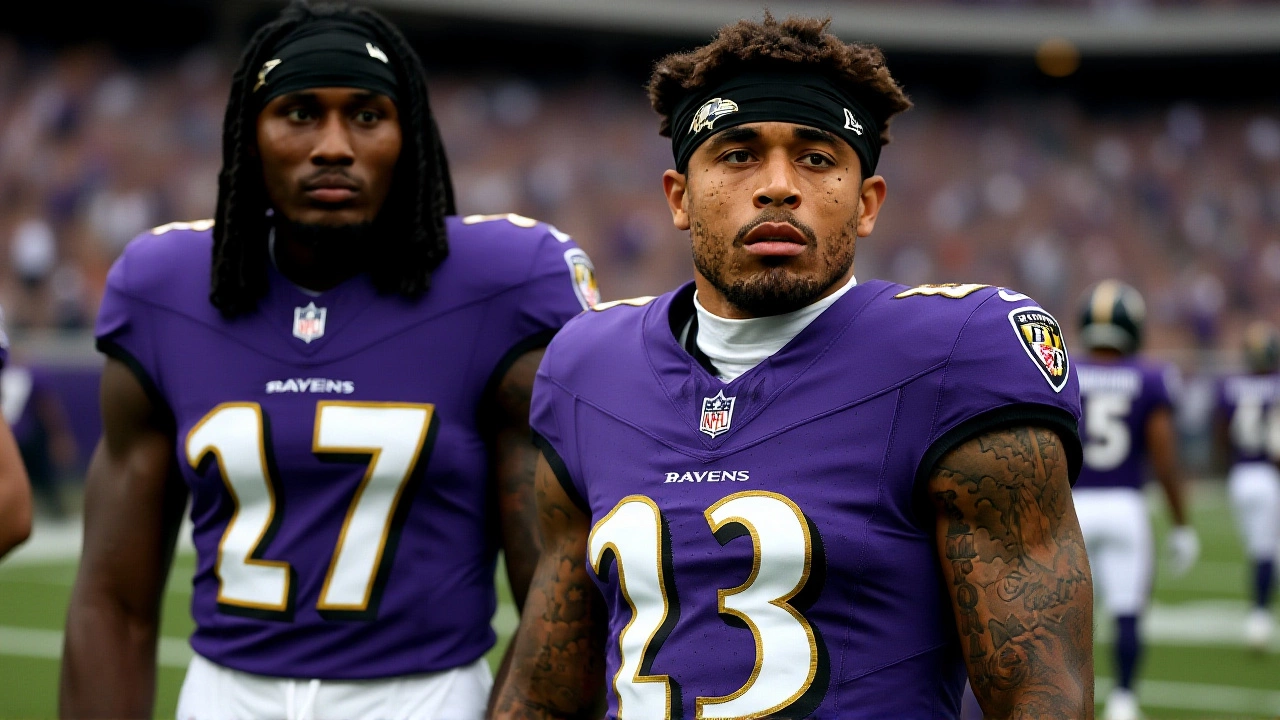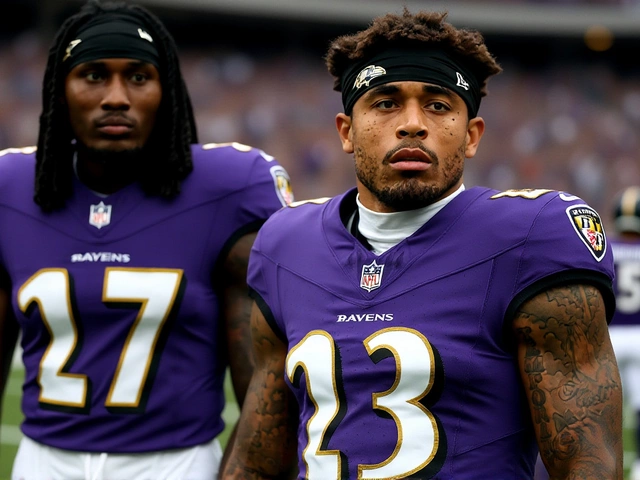When Jaire Alexander, a two-time Pro Bowl cornerback, told the Philadelphia Eagles he was stepping away from football, no one saw it coming. At 28, he was supposed to be the missing piece in their secondary — a veteran shutdown corner acquired in a trade just weeks before the 2024 season. Instead, he’s walking away. The news broke on November 12, 2024, when ESPN reported, citing a source with direct knowledge, that Alexander was prioritizing his physical and mental well-being. Bleeding Green Nation, the Eagles’ most trusted fan-driven outlet, confirmed it within hours. No official statement followed from the team. Not from head coach Nick Sirianni. Not from GM Howie Roseman. Not even from Alexander himself. Just silence — and a roster suddenly thinner than expected.
What Led to This Decision?
Alexander’s career had been on an upward trajectory. Drafted 18th overall by the Green Bay Packers in 2018, he became one of the NFL’s most reliable cover corners, earning Pro Bowl nods in 2020 and 2022. He had 10 interceptions, 50 pass deflections, and 175 tackles across 67 games. But the physical toll? It’s real. The mental weight? Even more so. He was traded to Philadelphia in late August, with expectations he’d lock down one side of the field opposite Darius Slay. Instead, he never suited up. Not in Week 1. Not in Week 5. Not even in practice. Sources say he’d been quietly pulling back from team activities for weeks. The final conversation with Eagles staff happened in early November — no drama, no public outcry. Just a quiet, firm decision: “I need to get right.”
The Eagles’ Defensive Dilemma
Now, Philadelphia’s secondary is scrambling. Slay, 33, is still elite — but he’s not getting any younger. Quinyon Mitchell, 22, showed flashes as a rookie but hasn’t handled No. 1 receiver duties. Cooper DeJean, 21, is a playmaker but still learning the nuances of NFL route combinations. Avonte Maddox, 28, and Nolan Smith, 24, are now being asked to carry heavier loads. The team didn’t have time to replace him before the November 5 trade deadline. So they turned inward: elevating practice squad corner Zech McPhearson, 25, for the Week 10 game against the Baltimore Ravens at M&T Bank Stadium. That game — scheduled for November 18 — became a test of depth, not star power. And it showed. Baltimore’s offense, led by Lamar Jackson, exploited the gaps. The Eagles gave up 32 points. Alexander’s absence wasn’t the only reason, but it was a big one.
Why This Matters Beyond Philadelphia
This isn’t just about one player. It’s part of a quiet but growing trend in the NFL. Since 2021, when players like Glenn Cook of the Cleveland Browns and Jonathan Allen of the Washington Commanders publicly stepped away for mental health reasons, the league has slowly shifted its stance. The Collective Bargaining Agreement allows for personal leave without penalty — but few players take it. Too much stigma. Too much pressure. Alexander’s move, though private, sends a message: It’s okay to put yourself first. He didn’t say he was injured. He didn’t say he was burned out. He just said he needed to get right. And the NFL, for once, let him.

What Happens Next?
The Eagles have until the end of the season to decide whether to place Alexander on the Physically Unable to Perform (PUP) list or designate him as non-football injury (NFI). Either way, his salary — estimated at $7.2 million for 2024 — will count against the cap. That’s $3.5 million in dead money this year, and potentially another $2 million in 2025 if he doesn’t return. They’ll likely look to re-sign veteran C.J. Gardner-Johnson or sign a free agent like Donte Deayon next offseason. But more than roster moves, this forces a conversation: How many other players are quietly struggling? How many more are afraid to speak up? The league’s mental health resources are better than they were five years ago — but are they enough?
Behind the Scenes: The Human Cost
Alexander’s social media activity dropped off sharply in the 72 hours before the news broke. No posts. No stories. Just silence. That’s not unusual for elite athletes under pressure — but it’s telling. He’s married, with a young child. He’s from Louisiana, where football isn’t just a game — it’s identity. Walking away from it? That’s not a career decision. It’s a life decision. And while Nike, his longtime sponsor, hasn’t commented, insiders say they’ve supported his choice privately. No contract penalties. No public statements. Just quiet backing. That matters. Because in a league built on toughness, sometimes the bravest thing you can do is admit you’re not okay.
Frequently Asked Questions
Why didn’t the Eagles make an official statement?
The Eagles follow NFL policy by not commenting on personal player decisions unless the player chooses to speak publicly. This is standard practice, especially when health matters are involved. The team confirmed Alexander’s absence but declined to elaborate, respecting his privacy. Their silence isn’t indifference — it’s protocol.
Can Jaire Alexander return to the NFL next season?
Yes — but there’s no timeline. Under the NFL’s CBA, he can return at any point during the season if he’s cleared medically and mentally. He’s not officially placed on PUP or NFI yet, meaning he retains full rights to rejoin the team. Many players who step away for mental health return within a year, but others, like former Chargers safety Jahleel Addae, never do. His decision will depend on his recovery, not the team’s needs.
How does this affect the Eagles’ Super Bowl chances?
It hurts. Alexander was projected to be a top-10 cornerback in 2024. His absence weakens their ability to cover elite receivers like Justin Jefferson or Ja’Marr Chase. With Slay aging and Mitchell still developing, the secondary is now a vulnerability. Philadelphia’s playoff hopes still exist — but they’re more dependent on their offense and pass rush than ever before.
Is this related to his trade from the Packers?
There’s no evidence it is. Alexander was traded in August after six seasons in Green Bay — a move he reportedly welcomed. Sources say he was excited about the opportunity in Philadelphia. The decision to step away appears unrelated to the trade itself, but rather to cumulative physical strain and mental fatigue that built up over years of high-level play.
What’s the financial impact on the Eagles?
Alexander’s 2024 salary of $7.2 million will count as dead money against the cap — roughly $3.5 million this year and $2 million in 2025 if he doesn’t return. The Eagles had already guaranteed $5.4 million of his contract. While that’s painful, it’s not crippling. Their cap space remains above $15 million, so they can still make moves — but they’ll need to be smarter with every dollar.
How common are players stepping away for mental health in the NFL?
It’s still rare, but increasing. Since 2021, at least 12 NFL players have taken personal leave for mental health, according to NFL Network data. Most stay private. Alexander’s case stands out because he’s a Pro Bowler in his prime, not a backup or rookie. His silence speaks louder than any press conference — and may encourage others to follow suit.

